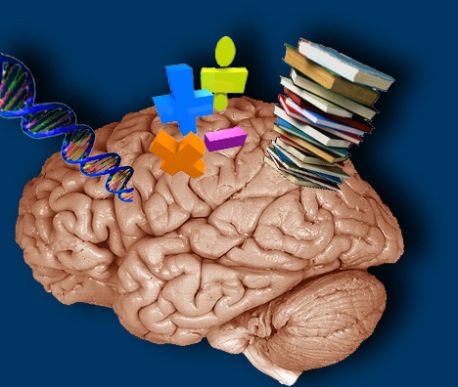Recently I came across a concept known as Dunbar’s Number that really resonated with me, having just started the school year.
The idea is that based on the size of the human neocortex, there is a limit to the number of people we can “know” at any given time. To know, in this case, means to have a social relationship with, to know not just their name and face, but who they are as a person and how they relate to others. It’s a limit imposed by the brain on the size of our social circles, and estimates (because this is certainly not an exact science) place it somewhere between 100 and 230 people. The most commonly cited number is 150 people.
While this is certainly interesting in its own right when compared to the numbers of “friends” that many people have on sites such as facebook, it really hit home for me when I got my class rosters for the first time last week.
Teaching six classes, each of them at the maximum capacity allowed by law in my city, I see over 200 students every single day.
That’s not just 200 names I need to memorize and papers I need to grade, but two-hundred young individuals with different wants and goals and in the classroom. Two-hundred kids who want and need and deserve to be more than just a name on an attendance sheet.
According to Dunbar’s theories and research, no matter how hard I want to or how hard I try, I can never truly relate with all of my students at a personal level. There are just too many of them. What is so bad about this is that it is precisely that kind of connection that leads to the greatest insight, learning, and growth in students.
Think back to your favorite teachers when you were a student. Were they the ones who didn’t know your name, or the ones who knew and cared what you were doing outside of school? Sure that still happens with plenty of teachers and students, but I think there’s something fundamentally flawed with a schooling system where this physically cannot happen between every student and every teacher.
Teaching isn’t—or shouldn’t—just be about getting through the curriculum. We’re not there just as knowledge dispensers, living encyclopedias. But even if we were, being able to tailor the material and curriculum to the specific needs, interests, and personal histories of our students guarantees that they will learn more and have a better understanding of the material.
I realize that overcrowding in the classroom is a problem precisely because there are too many students and not enough teachers, and I realize there is no simple way to fix this (although affording teachers the respect and professional stature they deserve in an attempt to convince the next generation that teaching is, in fact, a career worth pursuing would certainly be a good start), but I think it needs to be said yet again that the current system is unfair to both the teachers and students who are trapped within it.
It is an unfair expectation that teacher be able to know and interact at the personal level with two-hundred people every day (maybe as many as two-hundred-and-fifty once you include co-workers and other school staff), to place on them such a heavy load and still expect the results and excellence that came from a time when teachers had half as many students to engage and entertain.
But more importantly, it is unfair to the students who must fight for the attention of their teachers, struggling to be known as something more than just a name on a slip of paper. It is unfair to ask them to succeed and excel when their teachers do not have enough time in the day to sit with them as individuals and discuss their personal educations. To me, this is one of the greatest shames of the American education system.
All that said, I love my job and would not give it up for anything, and despite the overwhelming odds I will continue trying to make my classroom a place where all students can be known and all voices heard. Because for now, that’s all we can really do.
